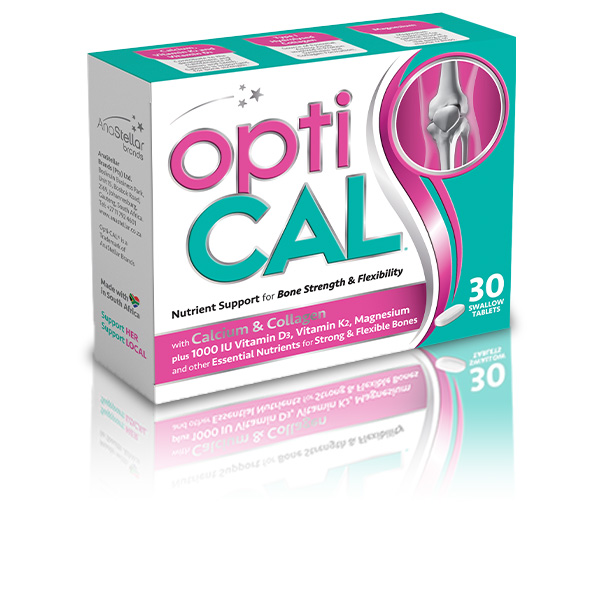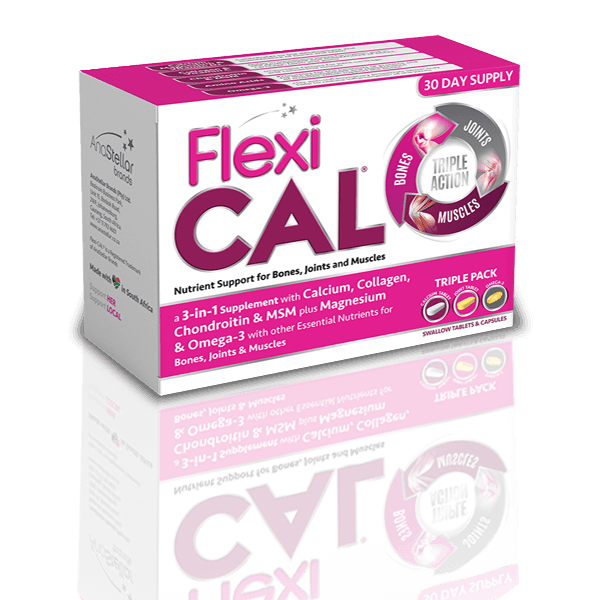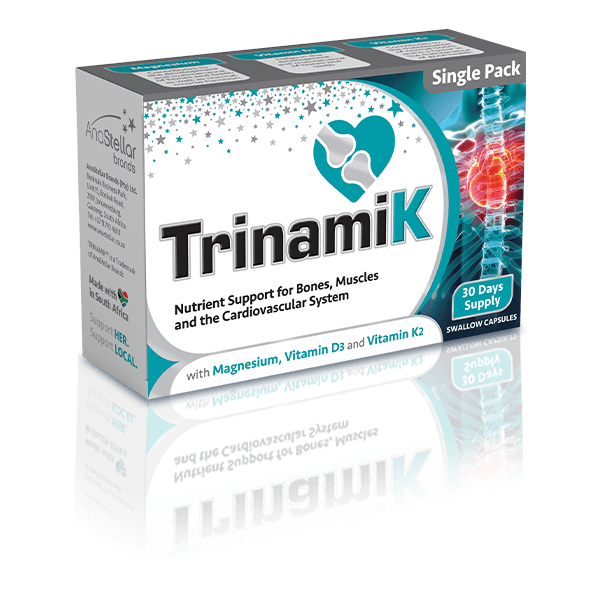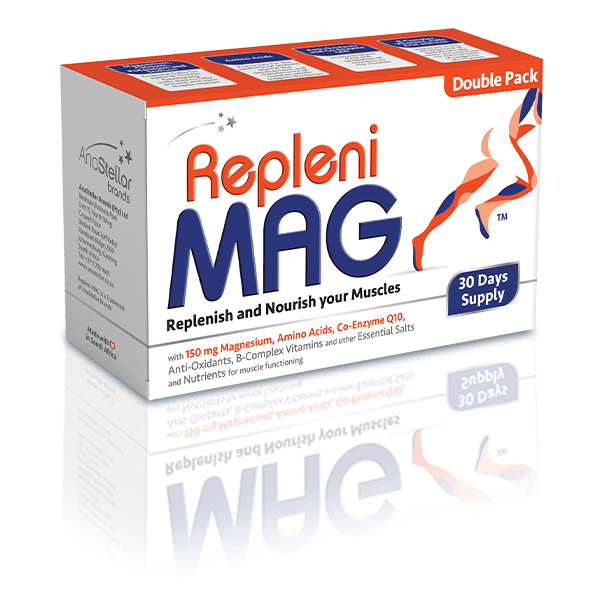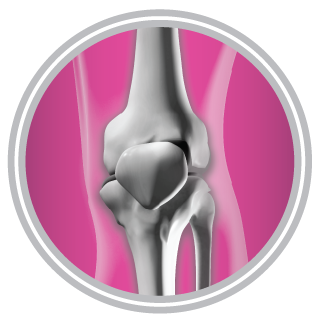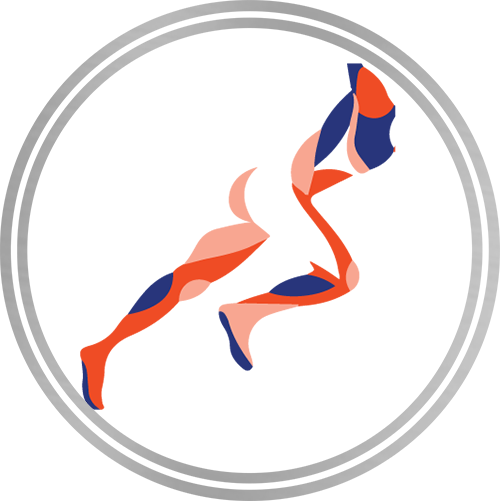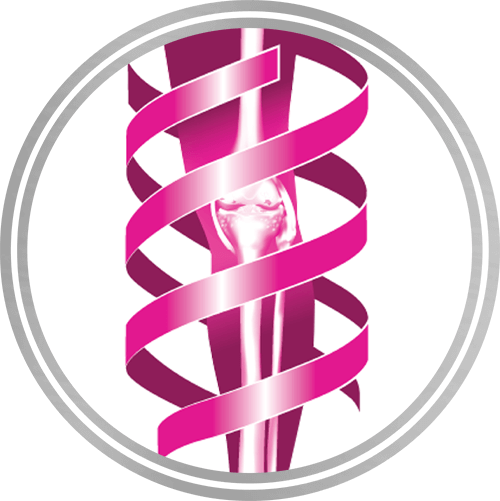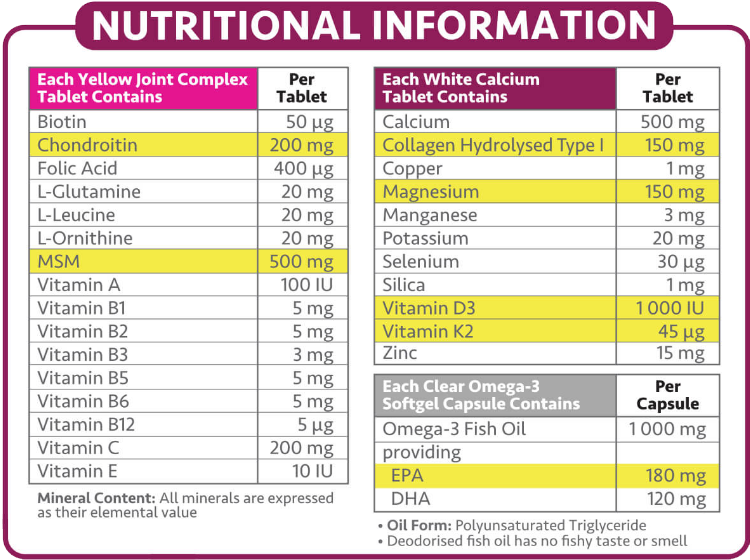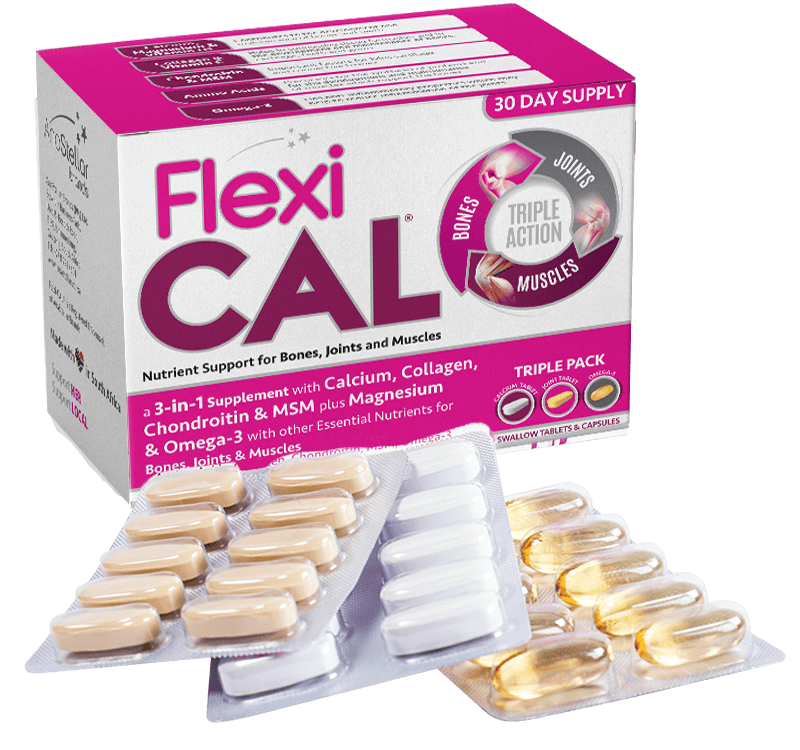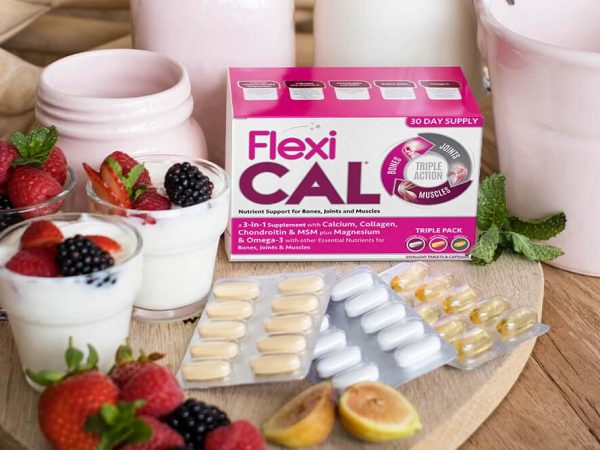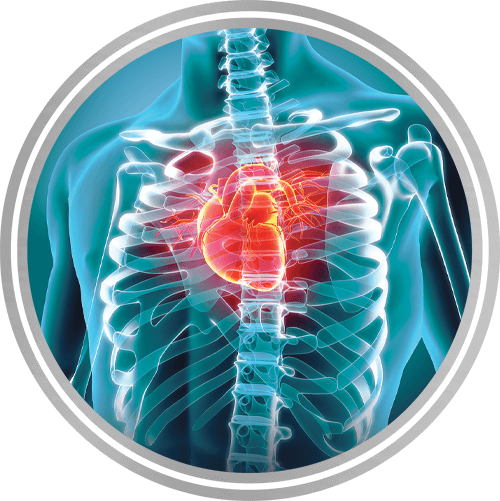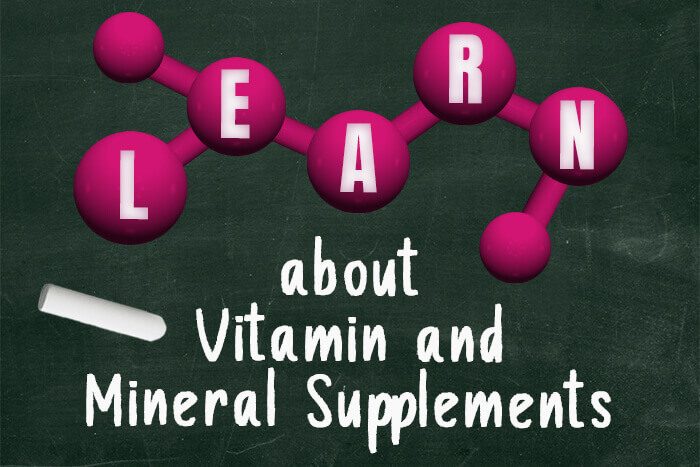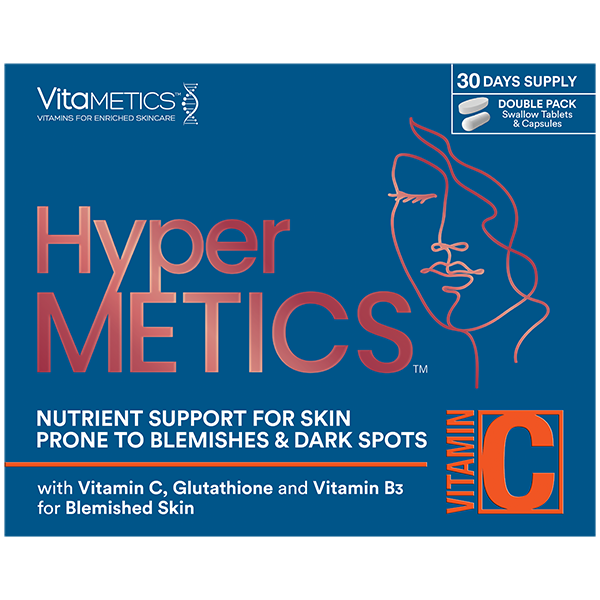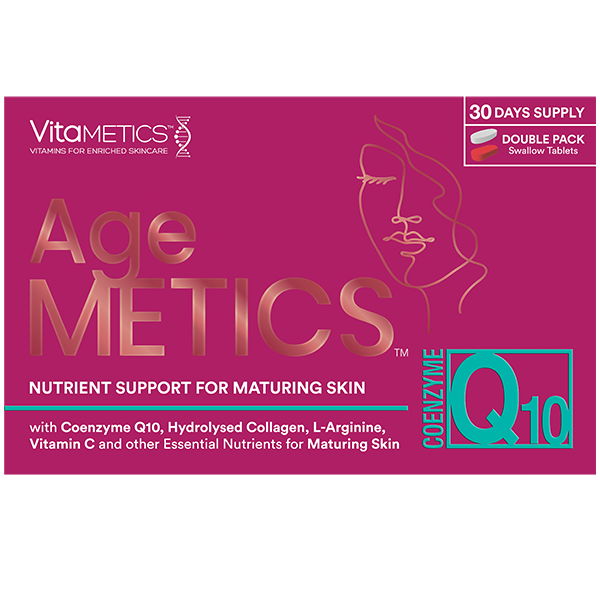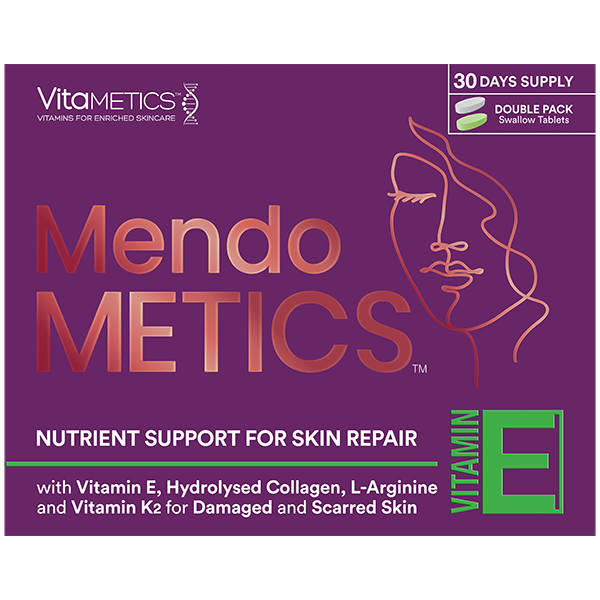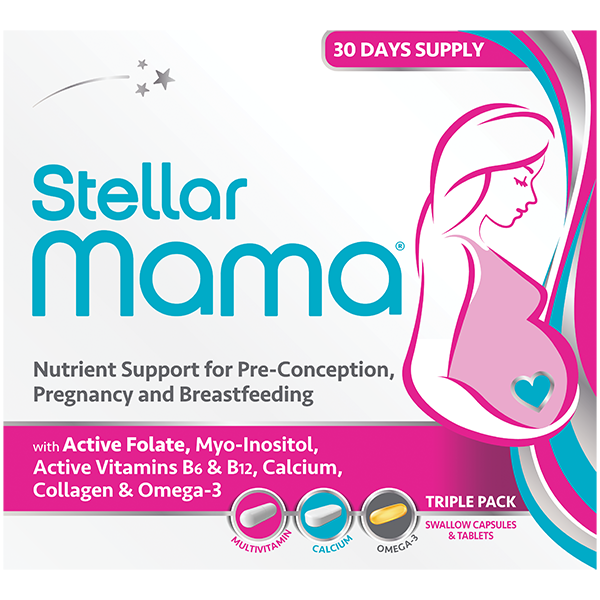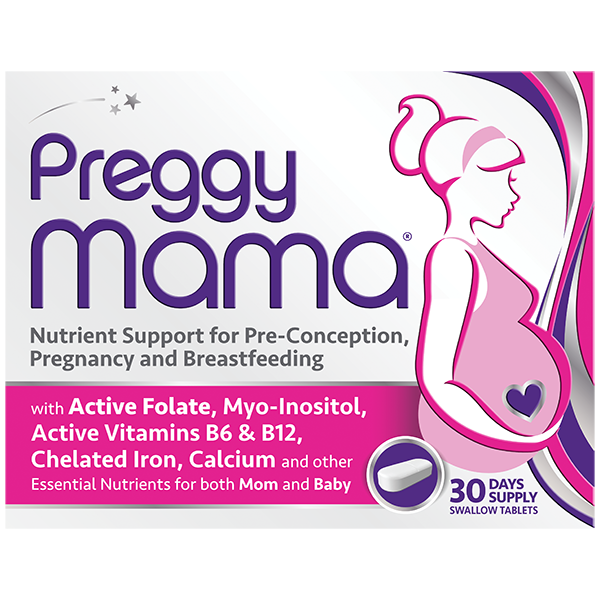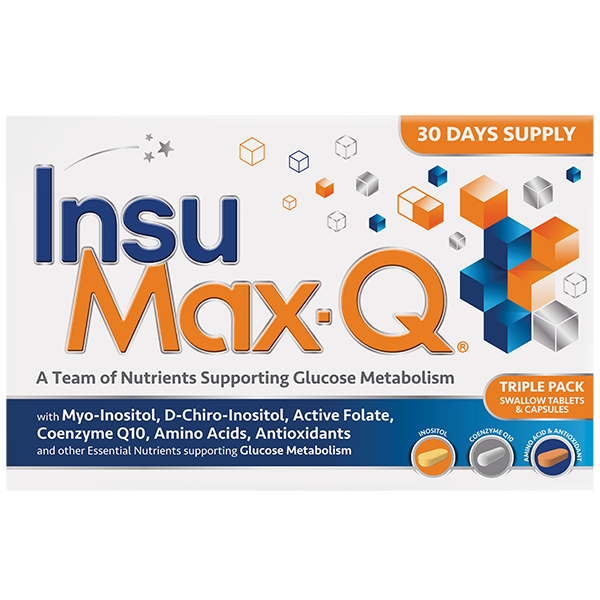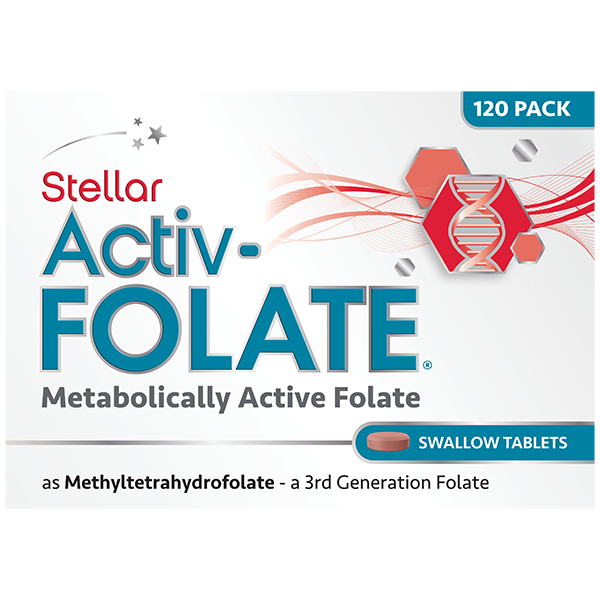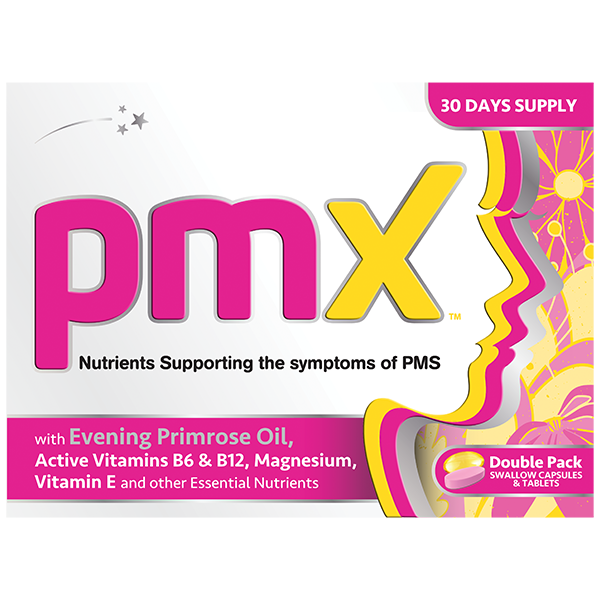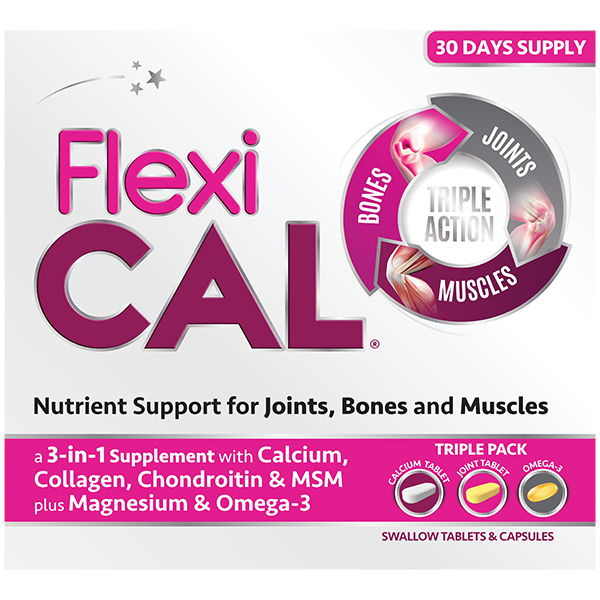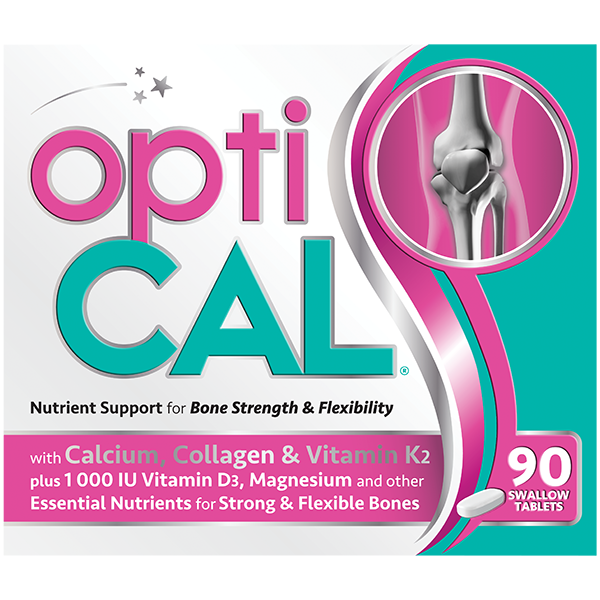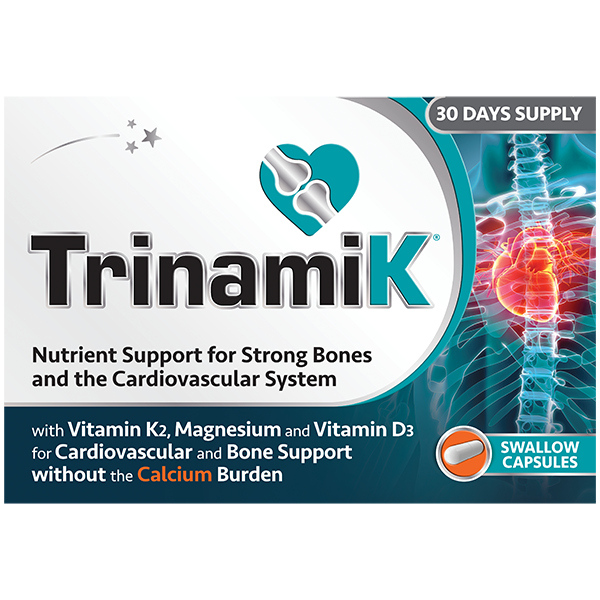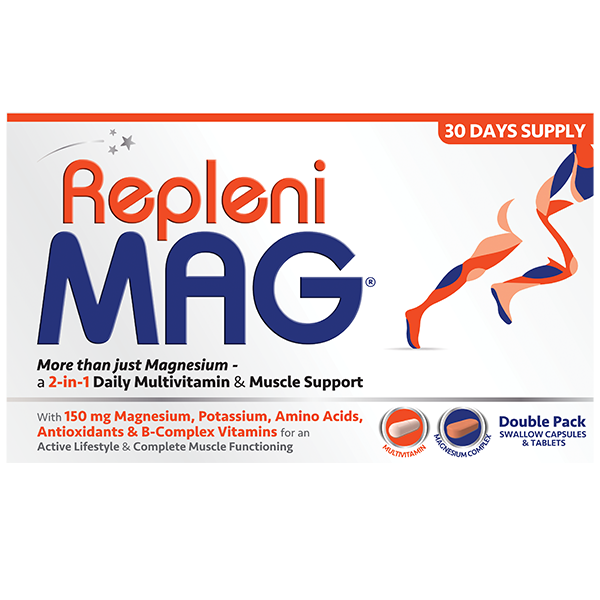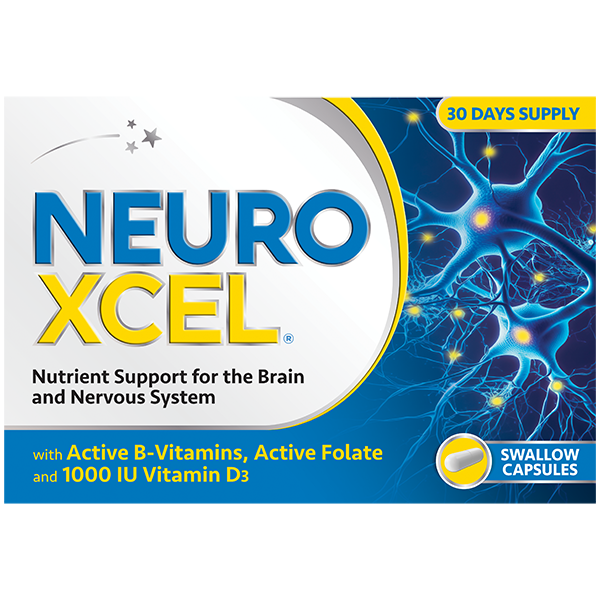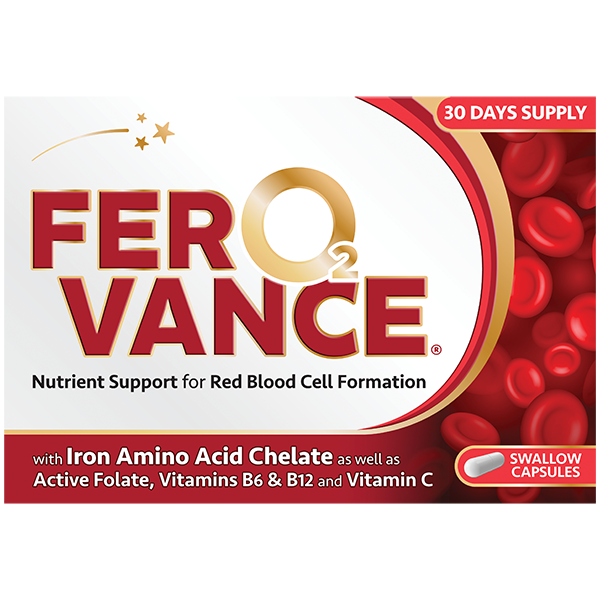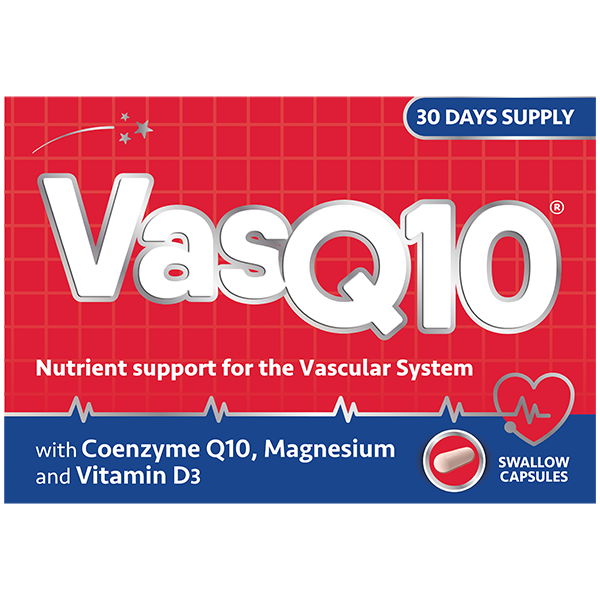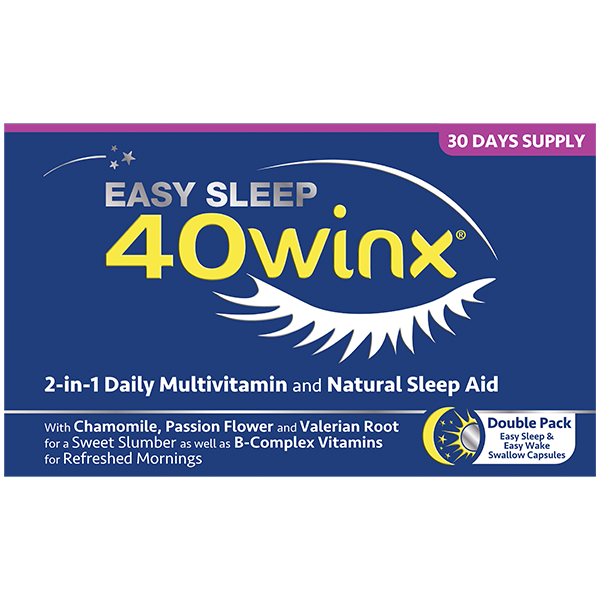FREE SHIPPING FOR ORDERS R500 OR MORE
FREE SHIPPING FOR ORDERS R500 OR MORE

Supplements for
Bones and Muscles
Strong healthy bones provide strength, balance, support, and good posture for our whole body.
Home | Product Ranges | Supplements for Bones and Muscles
Calcium Supplements
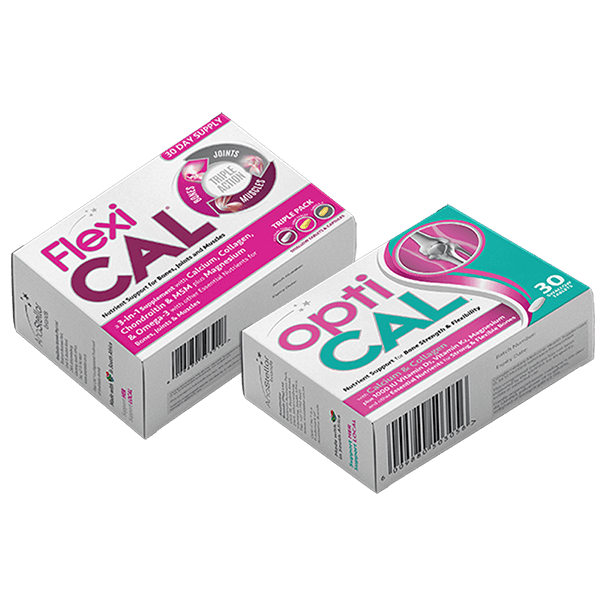
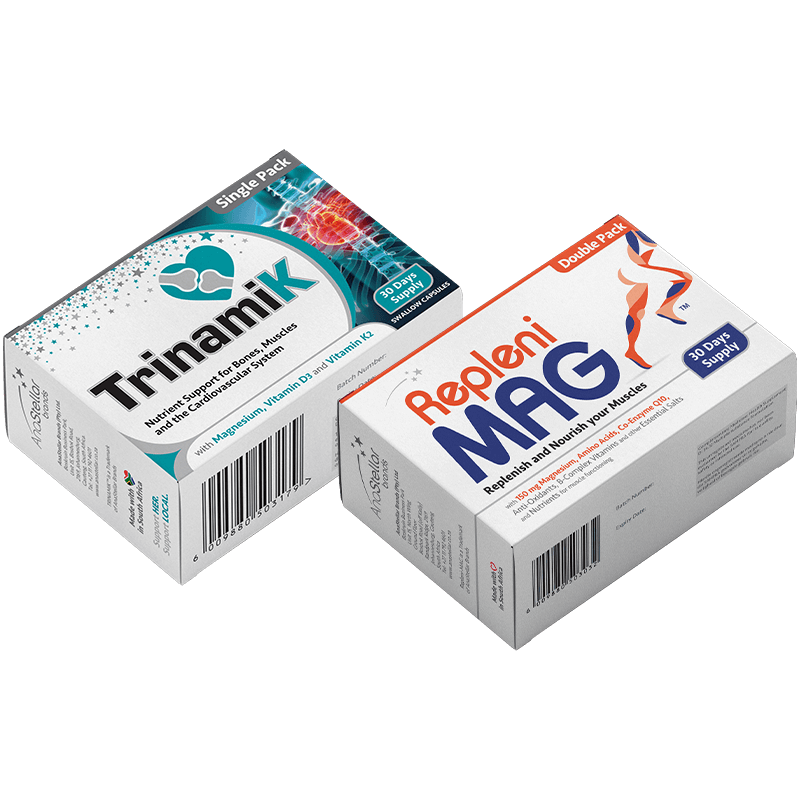
Strong healthy bones provide strength, balance, support, and good posture for our whole body. The function of bones is to protect our internal organs, provide support for our muscles, and to allow us to participate in physical activities that require movement, like walking, running, exercise and sports. Bones are also the main storage site of Calcium in the body.
The bone matrix is made up of 35% organic and 65% inorganic matrix. A good bone supplement targets the entire bone matrix with minerals and vitamins like Calcium, Vitamin D3, Vitamin K2, Magnesium, Potassium, Zinc, Manganese, Copper and Selenium for bone strength (making up the 65% inorganic bone matrix), and Type 1 Hydrolysed Collagen and Silica for bone flexibility (making up the 35% organic bone matrix). Type 1 Hydrolysed Collagen is the form of collagen that makes up most of the organic bone matrix.
For maximum Calcium absorption in the body, Calcium needs Vitamin D to be optimally absorbed. Vitamin D needs Magnesium to be activated, and Vitamin K2 assists in transporting excess Calcium from the soft tissue and circulating blood in the body into the bone (decreases arterial calcification). This combination of Calcium + Vitamin D + Magnesium + Vitamin K2 is a winning formula when looking for a Calcium Supplement.
Magnesium plays a role in body processes that affect muscle function, including oxygen uptake, energy production and electrolyte balance. Magnesium is also a component of bone. That means we need Magnesium for bones and muscles. 60% of the body’s magnesium is stored in our bones. It is also involved with the activity of Osteoblasts (bone-building cells) and the Parathyroid hormone, which regulates Calcium levels.
Nutrients that support muscle health are Magnesium, Antioxidants, B-Vitamins, Potassium, and Amino acids.

Opti-CAL
The bone matrix is made up of 35% organic and 65% inorganic (65%) matrix. A good bone supplement targets the entire bone matrix.
Opti-CAL contains Calcium, Vitamin D3, Vitamin K2, Magnesium, Potassium, Zinc, Manganese, Copper and Selenium for Bone Strength (65% inorganic Bone Matrix), and Type 1 Hydrolysed Collagen and Silica for Bone Flexibility (35% Organic Bone Matrix). Type 1 Hydrolysed collagen is the form of collagen that makes up the organic bone matrix.
For maximum Calcium absorption, Calcium needs Vitamin D. Magnesium activates Vitamin D. Vitamin K2 assists in moving calcium from the soft tissue into the bone (decreases arterial calcification).
Opti-CAL is a good supplement for Bones as it supports the entire bone matrix.
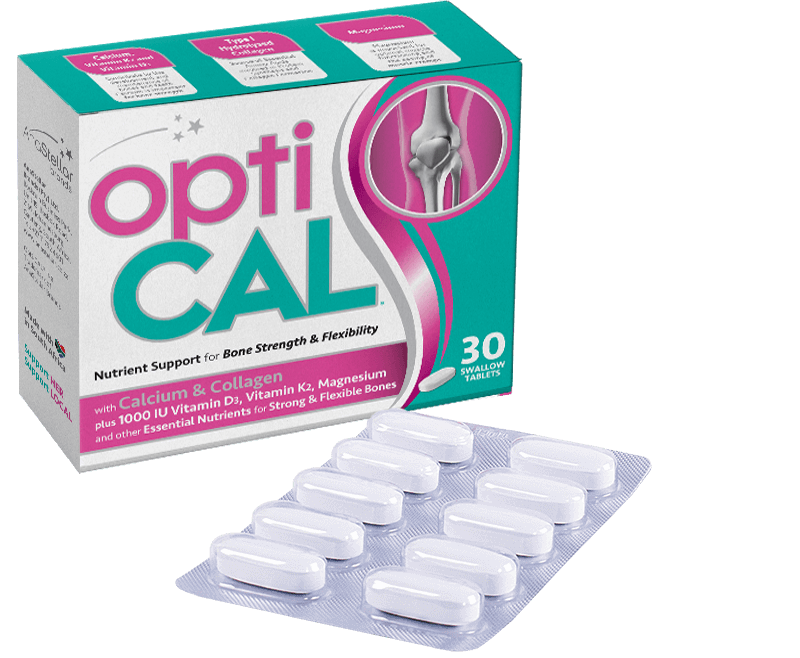
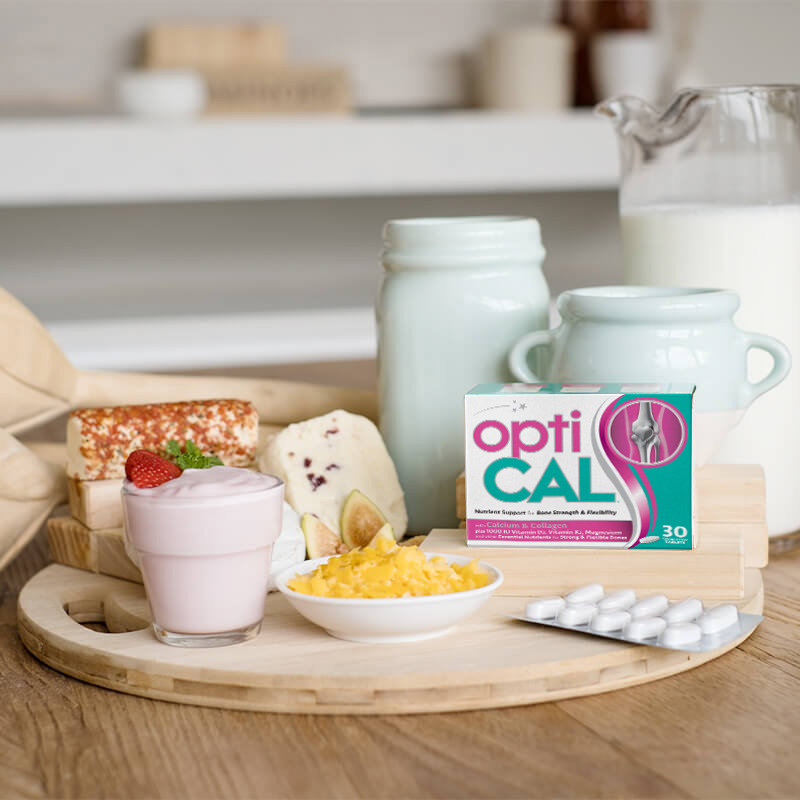
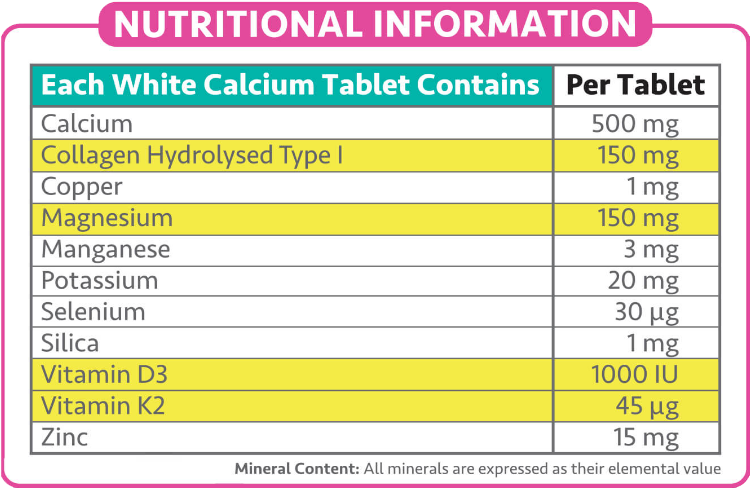

Repleni-MAG
Magnesium plays a role in processes that affect muscle function, including oxygen uptake, energy production and electrolyte balance. Nutrients that support muscle health are Magnesium, Essential Salts, Antioxidants, B-Vitamins, Potassium, and Amino acids.
Repleni-MAG contains 150 mg of elemental Magnesium, Amino Acids, B-Complex Vitamins and other Essential salts and nutrients for muscle functioning. Repleni-MAG has a 2-in1 value and is a good supplement for muscles.

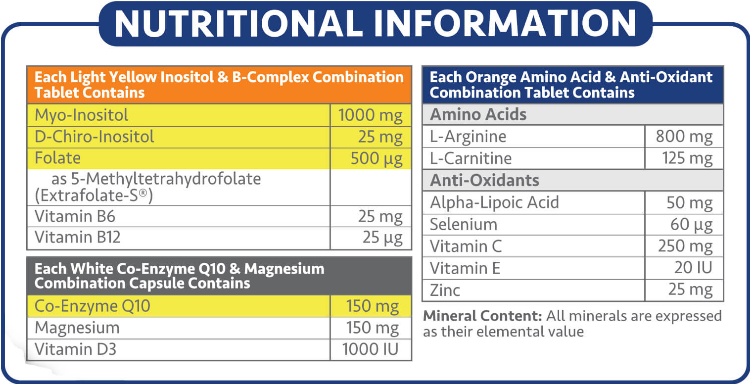
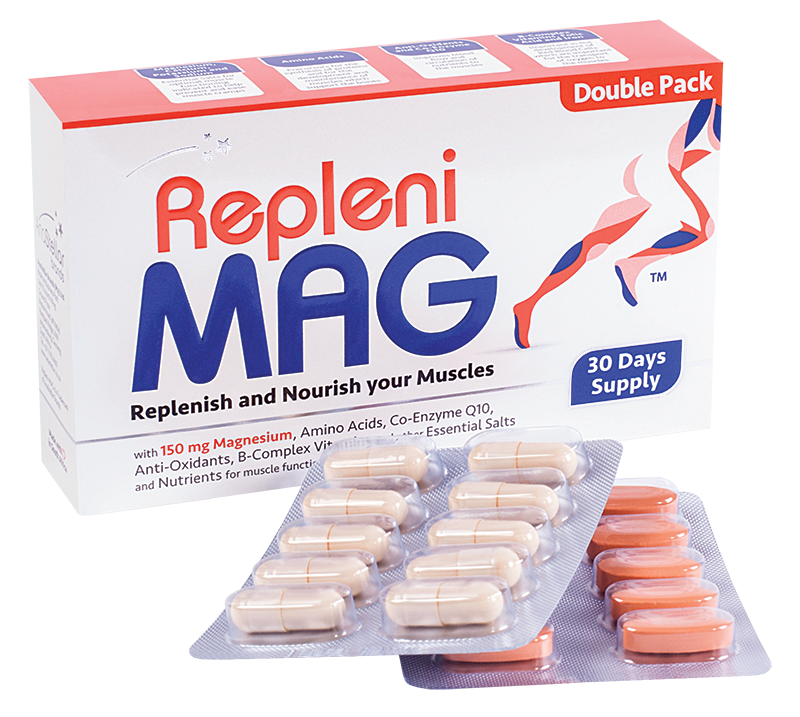
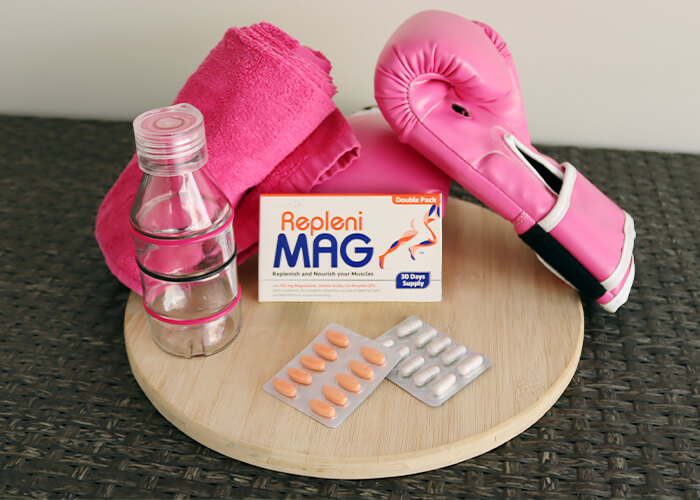
References:
- Outhoff K. (2018). Magnesium: effects on physical and mental performance. South African Family Practice. 60. 32-34. 10.4102/safp.v60i4.4902.
- Schwalfenberg GK, Genuis SJ. Vitamin D, Essential Minerals, and Toxic Elements: Exploring Interactions between Nutrients and Toxicants in Clinical Medicine. ScientificWorldJournal. 2015;2015:318595. doi: 10.1155/2015/318595. Epub 2015 Jul 29. PMID: 26347061; PMCID: PMC4539504
- Orchard TS, Larson JC, Alghothani N, Bout-Tabaku S, Cauley JA, Chen Z, LaCroix AZ, Wactawski-Wende J, Jackson RD. Magnesium intake, bone mineral density, and fractures: results from the Women’s Health Initiative Observational Study. Am J Clin Nutr. 2014 Apr;99(4):926-33.
- Farsinejad-Marj M, Saneei P, Esmaillzadeh A. Dietary magnesium intake, bone mineral density and risk of fracture: a systematic review and meta-analysis. Osteoporos Int. 2016 Apr;27(4):1389-1399.
Flexi-CAL
Flexi-CAL conveniently contains 3 components for Bone, Joint and Muscle Health in one 30-Day Supply Pack.
The bone matrix is made up of 35% organic and 65% inorganic matrix. A good bone supplement targets the entire bone matrix. The Calcium component in Flexi-CAL contains Calcium, Vitamin D3, Vitamin K2, Magnesium, Potassium, Zinc, Manganese, Copper, and Selenium for bone strength (making up the 65% inorganic bone matrix), and Type 1 Hydrolysed Collagen and Silica for bone flexibility (making up the 35% organic bone matrix). Type 1 Hydrolysed Collagen is the form of collagen that makes up most of the organic bone matrix.
For maximum Calcium absorption in the body, Calcium needs Vitamin D to be optimally absorbed. Vitamin D needs Magnesium to be activated, and Vitamin K2 assists in transporting excess Calcium from the soft tissue and circulating blood in the body into the bone (decreases arterial calcification). Some minerals and vitamins are just better together!
The Calcium component of Flexi-CAL contains these 4 specific minerals and vitamins to ensure maximum Calcium absorption.

TrinamiK
Vitamin K2 plays a pivotal role in bone health as it activates the protein Osteocalcin, which helps take Calcium from the blood circulation and bind it to the bone matrix. Vitamin K2 also keeps Calcium from accumulating in the walls of blood vessels by activating matrix GLA protein (MGP).
TrinamiK contains high dose Vitamin K2, Magnesium and 1000 IU of Vitamin D3, and is a good supplement for bones in people who cannot take more dietary Calcium (they have kidney stones or hypercalcaemia) but also have weak and brittle bones. TrinamiK focuses on bone health without making use of additional Calcium supplementation. The inclusion of Vitamin D assists in Calcium absorption in the body, and Magnesium activates Vitamin D.
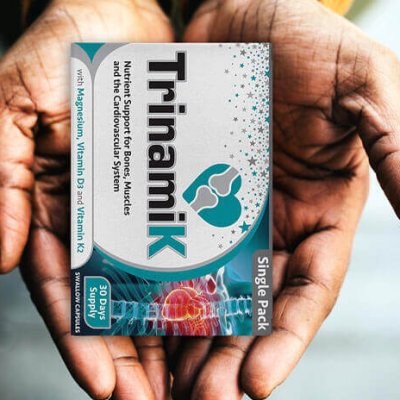
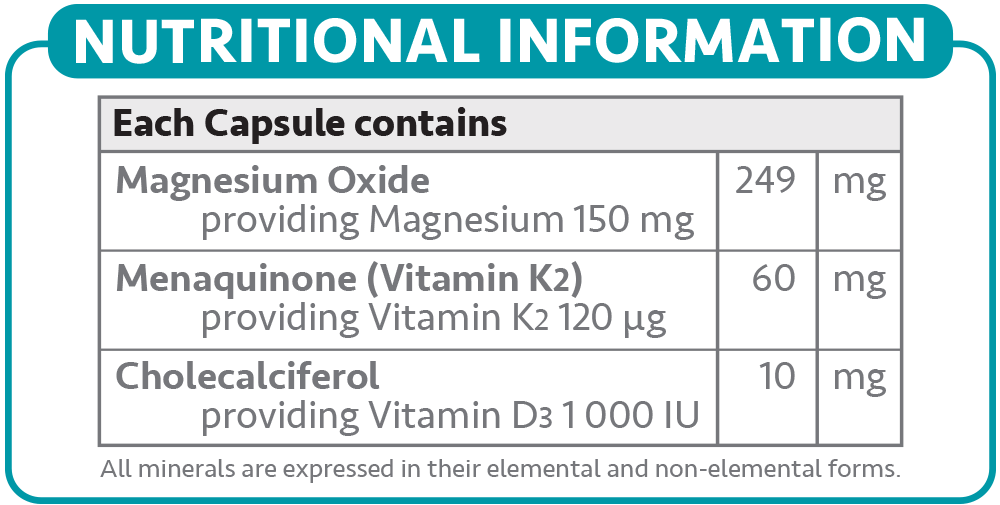
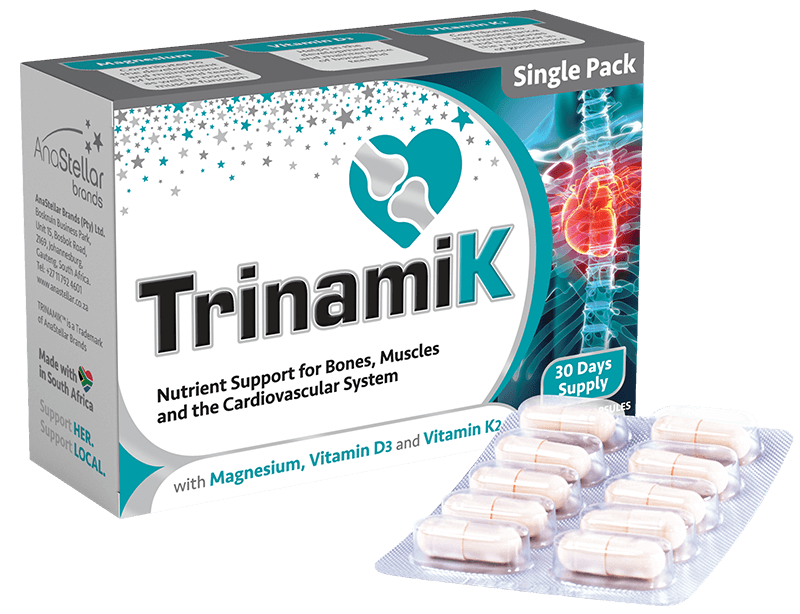
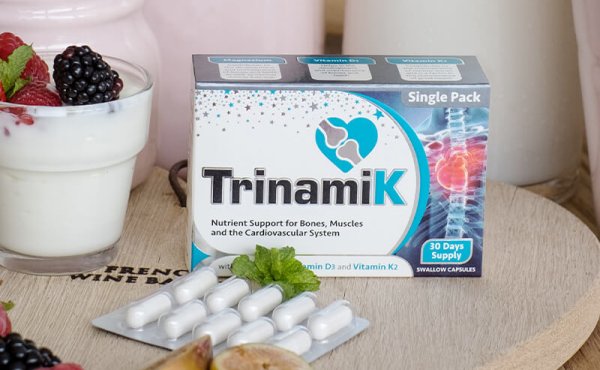
References:
Maresz K. Proper Calcium Use: Vitamin K2 as a Promoter of Bone and Cardiovascular Health. Integr Med (Encinitas). 2015;14(1):34-39.
Frequently asked Questions
Osteoporosis literally means “porous bone”. It is a salient disease where the bones gradually become weaker and weaker, causing changes in posture and making the individual extremely susceptible to fracture. It is generally more common in Females (1 in 3) than Males (1 in 5). Women tend to be more susceptible to Osteoporosis when reaching Menopause because their Oestrogen levels start to decrease. Oestrogen is bone protective and thus, decreasing levels of Oestrogen will leave the bones “defenseless” from leaching of calcium.
The most effective way to aid in the prevention of Osteoporosis is by following a healthy diet rich in dairy, supplementing with Calcium, Magnesium, Vitamin D3 and Vitamin K2 as well as embarking on weight-bearing exercises to strengthen the muscles that support the bones. Calcium, Magnesium, Vitamin D3 and Vitamin K2 all work synergistically to support the formation and maintenance of strong healthy bones. Opti-CAL contains not only Calcium, Vitamin D3, Magnesium and Vitamin K2, but also Type 1 Hydrolysed Collagen for Bone Strength and Flexibility. Strong Bones can still shatter and break, but strong and flexible bones can absorb impact.
Yes, it is absolutely essential and safe to take Calcium or use a Calcium Supplement during Pregnancy! Calcium is extremely important during pregnancy since it is essential for the healthy development of baby’s bones and teeth, as well as for mom’s bones and teeth. Often, pregnant women struggle with decreased calcium levels, because calcium is moved from mom to baby for bone formation, leaving mom prone to weak teeth and possible osteoporosis. Calcium Supplementation is most important in the 3rd Trimester of Pregnancy as well as during Breastfeeding.
In general Calcium Supplements cause very few side effects. However, in some people, Calcium Supplements can in very rare circumstances cause mild side effects such as gas, constipation, and bloating. Calcium Carbonate or Oxide are the most likely Calcium Salts to cause constipation, however in most people, it is possible for this side effect to dissipate after approximately 10 days of continued use as the body gets used to it. Another way to ensure that a person does not get constipated from their Calcium Supplement is to ensure that their Calcium Supplement additionally contains Magnesium in it. Magnesium has a laxative effect (softens the stool) in some people and can help to nullify the constipatory effect of Calcium.
Kidney Stones: are hard deposits made of minerals and salts that form inside your kidneys. Diet, excess body weight, some medical conditions, scheduled medications and certain supplements containing Calcium (without Vitamin K2 and Magnesium) are among the many causes of kidney stones. Kidney stones can affect any part of your urinary tract, from your kidneys to your bladder. Often, stones form when the urine becomes too concentrated, allowing minerals such as Calcium to crystallize and stick together. Passing kidney stones can be quite painful, but the stones usually cause no permanent damage if they’re recognized in a timely fashion. It is essential that if you are supplementing with Calcium to make sure that your Calcium Supplement contains high doses of Vitamin K2 and Magnesium (as contained in products like TrinamiK, Opti-CAL and Flexi-CAL). Vitamin K2 and Magnesium make sure that the Calcium that is contained in your Calcium Supplement is directed to the correct parts of your body such as your bones (and not in your arteries and kidneys).
Calcium and Vitamin D should always be taken together for bone health. Vitamin D is essential for promoting the absorption and utilization of Calcium and Phosphorus. Along with Parathyroid Hormone (PTH) and Calcitonin, Vitamin D regulates the Serum Calcium Concentration by altering Calcium and Phosphate blood levels as needed and it also enhances the bioavailability of Magnesium. A Vitamin D deficiency results in inadequate intestinal absorption of Calcium and Phosphate leading to hypocalcaemia, hypophosphataemia and hyperparathyroidism as well as the demineralization of the bone.
When choosing a Calcium Supplement, you should always choose one that contains both Magnesium and Vitamin D. Magnesium activates Vitamin D, and the Vitamin D in turn aids the Calcium absorption and utilization.
Calcium and Vitamin D should always be taken together for bone health. Vitamin D is essential for promoting the absorption and utilization of Calcium and Phosphorus. Along with Parathyroid Hormone (PTH) and Calcitonin, Vitamin D regulates the Serum Calcium Concentration by altering Calcium and Phosphate blood levels as needed and it also enhances the bioavailability of Magnesium. A Vitamin D deficiency results in inadequate intestinal absorption of Calcium and Phosphate leading to hypocalcaemia, hypophosphataemia and hyperparathyroidism as well as the demineralization of the bone.
When choosing a Calcium Supplement, you should always choose one that contains both Magnesium and Vitamin D. Magnesium activates Vitamin D, and the Vitamin D in turn aids the Calcium absorption and utilization.
Your bones contain most of the total calcium in your body. The body cannot make calcium, it needs to be obtained through diet and supplements. If you do not get enough calcium in your diet, or if your body does not absorb enough calcium, your bones can get weak or will not grow properly. Bones are the main storage site of calcium in the body. Calcium is needed to assist in the formation and maintenance of healthy bones. As we age, bones are constantly being remodelled with old bone being resorbed (broken down) and new bone being formed (built up).
When we measure Bone Strength, we test for Bone Mass or Bone Mineral Density, which refers to how much calcium and other minerals are present in a specific section of your bone. Peak Bone Mass is achieved by the age of 25-30 years. Early Calcium Supplementation increases Peak Bone Mass which may decrease the risk of developing Osteoporosis and Osteopenia in later life. Thus, don’t delay …… start Bone Building Therapy today.
The amount of calcium needed for healthy bones and teeth varies by age, sex, and hormone status. It is important to note that many women of all ages don’t get enough calcium in their daily diet. Most doctors and specialists encourage their female patients to take a calcium supplement daily for maintaining strong bones and muscle function.
The daily suggested calcium intake for adults starts with 1000 mg for adults from 19 years of age and increases when women go into menopause to 1200 mg. However, the body can only absorb 500 mg of Calcium per Dose. Thus, if you are taking more than one calcium tablet daily it is important to split the dose thereof in order to maximize its absorption. Care must be taken not to take too much calcium as too much calcium (without Vitamin D, Magnesium and Vitamin K2) can cause problems in the body, such as arterial calcification (stiffening).
It is best to take Calcium at night after a meal.

